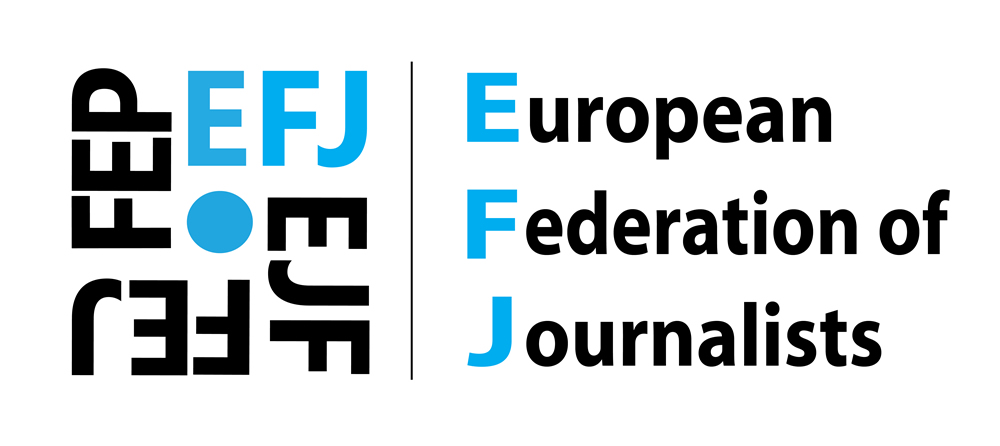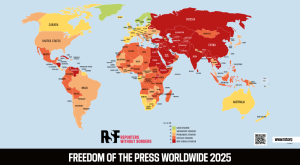Although the Republic of Serbia has undertaken some concrete steps, safety of the journalists has not improved, numerous attacks and threats on journalists are recorded continuously, and the existing protection mechanisms have not proven to be sufficiently effective and adequate.
The most important and effective mechanism was developed within the multisectoral Standing Working Group for Journalists’ Safety, with a developed system of contact points for fast reporting and monitoring incidents against journalists, monitoring the procedures that have been initiated and reacting in case of irregularities.
Independent journalists and media are exposed to various types of pressures, targeting and smear campaigns from public officials and pro-government media, which often leads to harassment and serious threats by ordinary citizens, primarily through social networks.
The Independent Journalists’ Association of Serbia (IJAS) and Journalists Association of Serbia (JAS) recorded around 140 cases of attacks and pressures in 2022. In 2023 IJAS recorded 57 cases of attacks and pressures (11 verbal attacks, 6 physical attacks and 40 pressures).
According to the records of the Republic Public Prosecutor’s Office, in 2022, 81 criminal reports were submitted to the public prosecutor’s offices. In 26 cases a decision was made to dismiss the criminal complaint or an official note was issued stating that there is no basis for initiating criminal proceedings. In 5 cases a guilty verdict was handed down, and in one case, the verdict was acquittal. Also, 6 cases are ongoing before the court. In 5 cases the perpetrators are unknown, and 40 cases are at some stage of proceedings before the prosecution.
Until the end of March 2023, Republic Public Prosecutor’s Office recorded 14 new cases, out of which in 4 cases a decision was made to dismiss the criminal complaint or an official note was issued stating that there is no basis for initiating criminal proceedings, 10 cases are still in pre investigative procedure.
Finally, there are still no judicial epilogues in the cases of murder of journalists Milan Pantić, Dada Vujasinović and Slavko Ćuruvija. Despite the ten-year work of the Commission for Investigating Murders of Journalists and two first-instance verdicts of 100 years for the head of the secret police at the time in the case of the murder of Slavko Ćuruvija, the journalistic community is worried because of all the circumstances we live in.
This verdict should end the chain of impunity and justice should finally be served. If this does not happen, every hope for professional healthy journalism in Serbia will be killed.
In the case of journalist Milan Jovanović, whose house was devastated in an arson attack in 2018, trial has also not been completed. Conviction was handed down at first instance court for now.
The number of SLAPPs has been on the rise in the past couple of years. According to the Independent Journalists’ Association of Serbia data, in 2021 and 2022 there have been 40 lawsuits that can be characterized as SLAPPs.
The analysis of recorded cases shows that the target of SLAPPs are investigative media outlets and media that report critically about the work of public officials, businessmen, crime etc. The media are being exhausted by a large number of legal claims and the amounts requested as compensation, as well as by evidently unfounded claims.
Mainly, the claimants are public officials, politicians, businessmen, and companies.
The European Federation of Journalists meeting in its general assembly on May 11 and 12 in Hague calls on:
- Serbian judiciary to conduct prompt, impartial, thorough and effective investigations into all cases of murders, attacks, harassment and intimidation against journalists offline and online, ensuring no impunity for perpetrators;
- High representatives of the executive power, members of National Assembly and other state or local officials to stop with targeting and using of abusive narrative and thus provoking the smear campaigns against investigative and independent journalists and media;
- Decision makers to take all necessary measures so that the legal framework foresees the additional necessary safeguards to deal with obviously unfounded or abusive court proceedings against public participation;
- Judiciary to provide additional training for judges in order to build their knowledge and capacities in detecting and dealing with manifestly unfounded or abusive court proceedings against public participation.




